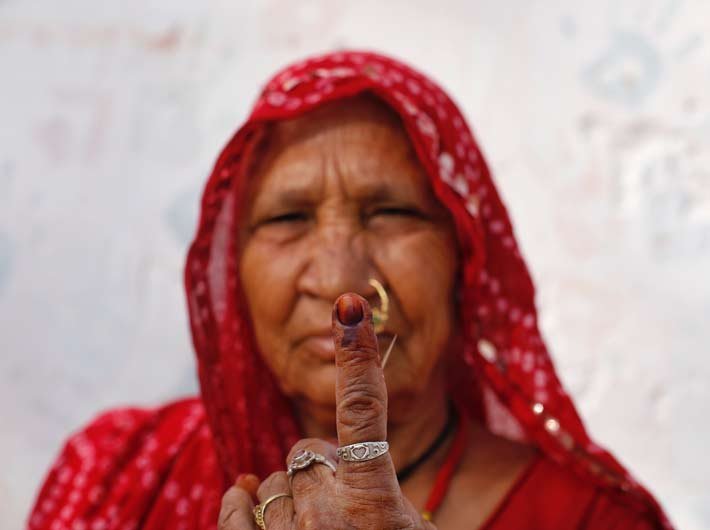NEW analyses fund collection and expenditure statements of the parties that contested 2014 elections
Political parties that contested the Maharashtra and Haryana assembly elections in 2014 spent the largest part of their expenses, Rs 280.72 crore (77.35 percent), on publicity, shows an analysis by the National Election Watch (NEW). This was followed by Rs 41.40 crore on travel expenses, Rs 22.59 crore on ‘other/miscellaneous expenses’ and Rs 18.16 crore on lump sum amounts paid to candidates.
Five years ago, to contest the assembly elections in these two states, 15 parties collected a total of Rs 464.55 crore, and spent Rs 357.21 crore. Funds collected by the parties at their central headquarters were Rs 233.76 crore while expenditure was Rs 204.10 crore.
Maharashtra state units of these parties spent Rs 136.69 crore while the Haryana state units spent only Rs 16.42 crore.
BSP, AIFB, IUML & JDU are the only parties that declared no funds collected either at the central or at the state unit level despite contesting elections. AIFB, IUML and JDU are the only parties that have incurred no expenditure either at the central or at the state unit level despite contesting elections, the NEW found.
Parties are required to submit a statement of election expenditure to the Election Commission of India (ECI) within 75 days of completion of assembly elections.
The expenditure statement contains details of the total amount received as funds in the form of cash, cheques and demand drafts and the total amount spent under various heads. It also contains information on the amount spent on the following heads at the central and state levels by the party: publicity, travel expenses, other expenses, and expenditure towards candidates.
Parties submit these statements providing information of funds collected and spent between announcement and completion of elections. This period could be between three weeks to three months based on the notification issued by the ECI.
The NEW has published its report analysing the funds received and expenditure incurred by recognized political parties, during the assembly elections to Maharashtra and Haryana, held in 2014 (elections announced on September 20and were completed on October 22).
The Association for Democratic Reforms (ADR) has made the following observations along with the NEW report:
* The election expenditure statements of JDS and RLD are not available in the public domain, with a total delay of more than four years and six months. This is in violation of the supreme court judgment dated April 4, 1996 (Common Cause vs. Union of India), directing the ECI to create a format for the recognised parties to submit their statements.
* The expenditure statement of AIMIM available on the website of ECI fails to adhere to the prescribed format. It does not furnish information on the funds collected and expenditure incurred from its central headquarters and state units in a systematic and structured manner, as directed in the SC judgment, to enable scrutiny of the expenditure.
* Three national parties – INC, CPI and BJP – delayed the submission of their election expenditure statements by 181 days, 197 days and 198 days respectively.
ADR recommends:
* It must be made mandatory for all political parties to submit their statements of expenditure in the format given by the ECI, within the prescribed time limit. Political parties not submitting on time or in the prescribed format should be heavily penalized.
* The details of all donors who contribute to national and regional parties exclusively for their election campaigns must be declared in the public domain irrespective of the amount donated.
* A format similar to the donations report along with the date of donations, submitted to the ECI on an annual basis, has to be prescribed for the expenditure statement so as to bring in more transparency in the finances of the political parties especially during elections when it is said that black money plays a major role.
* Where possible, expenditure must be limited to transactions via cheque/DD/RTGS so as to reduce the use of black money in elections, as per the transparency guidelines issued by the ECI.
* Similar to the shadow observers of the ECI for monitoring expenditure of candidates, there must also be observers for monitoring the expenditure of political parties.
